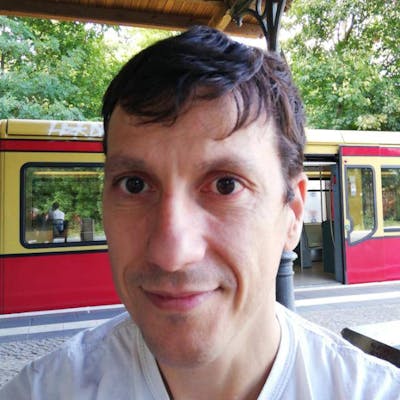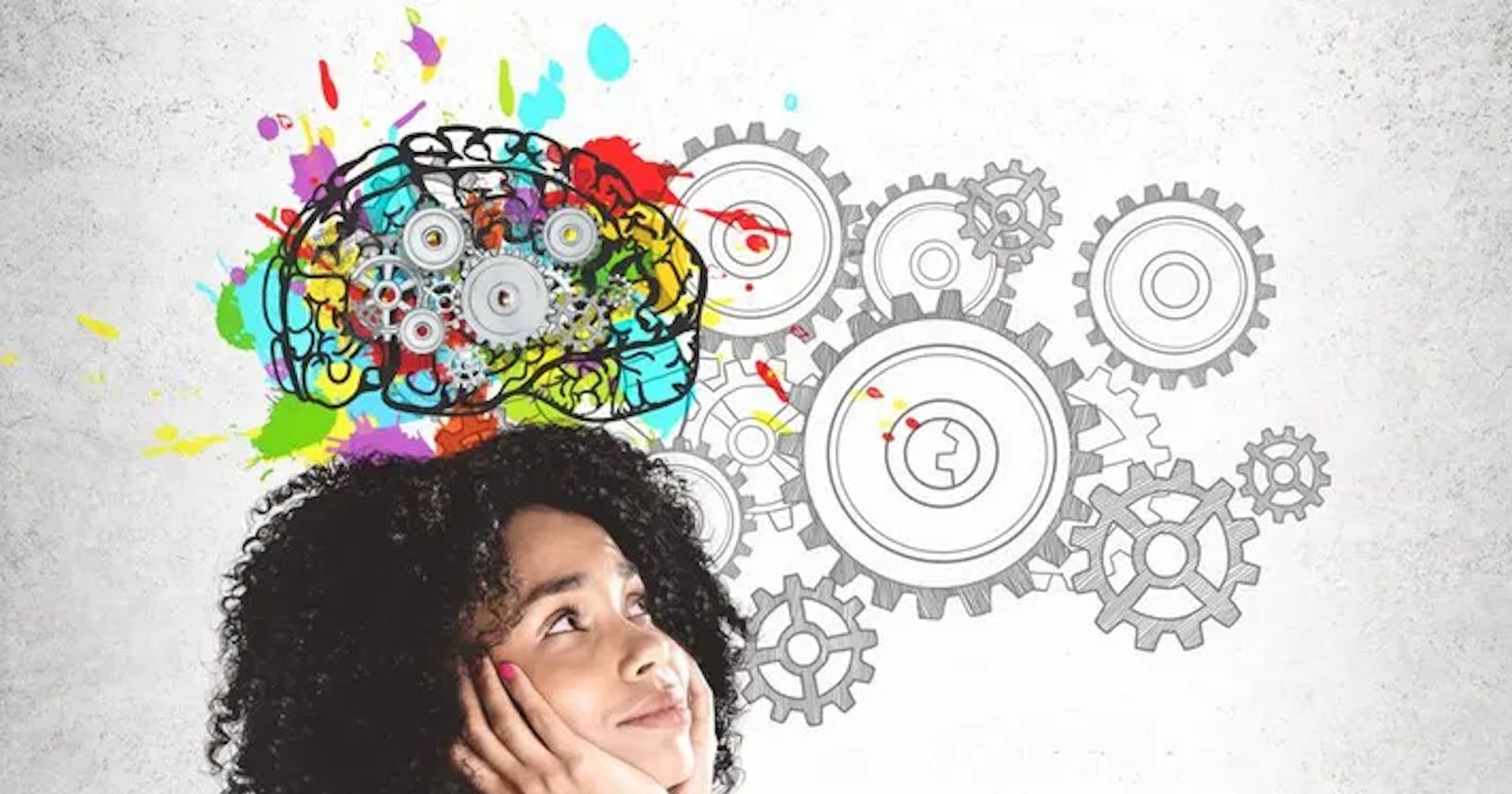I was introduced to the wonderful neuroscientist and primatologist, Robert Sapolsky, more than 10 years ago, via a colleague. He told me: "you should watch his lectures on the human behavioral biology at Stanford". Wow, mind blown. Highly recommended. Not only for the wealth of information presented but also for the way he approaches scientific reasoning. What are the proper questions, what are the insightful experiments that allow us to reach valid conclusions about human behavior? You can get a glimpse of his thinking by reading what are the effects of testosterone on the human body. Spoiler alert: they are far more intricate than "it raises aggressiveness".
After watching the videos, I read "Why zebras don't get ulcers". That book made me think twice about the devastating effects of stress on the human body. I followed with "Behave: the biology of humans at our best and worst", which explores the biology of how nice or terrible we can be to each other. That book quite convincingly makes the case that our sense of ethics, and our actual actions, are determined by what happens in our body, from one second before, to one day before, to years ago (and even millennia if you account for evolution).
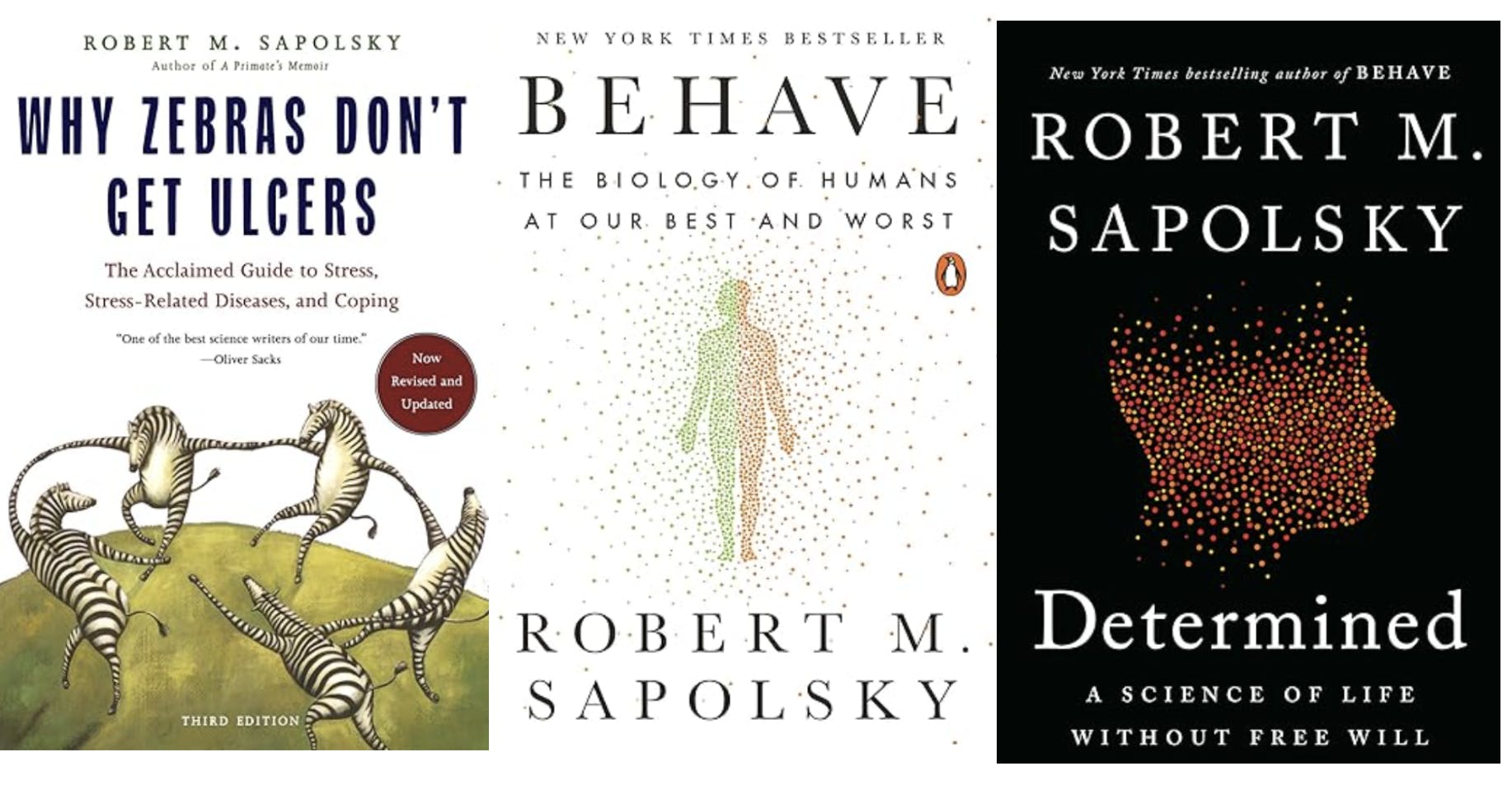
Robert Sapolsky's new book, "Determined, a science of life without free will", follows the same thread to reach some troubling conclusions:
There is no free will.
Yes, really, wherever you're looking for it, you can't find it.
This changes how we see the world in terms of responsibility, punishment, merit.
The revolting biology of our actions
The book is divided in two parts. The first part goes into the biology of our behavior and shows that there's no place to shoehorn free will. The second part tries to draw some social conclusions.
Robert Sapolsky was reluctant to write this book. Although he became convinced at an early age, just 14 years old, that free will does not exist, Robert Sapolsky is well aware that he represents a minority position. Most people, including scientists and philosophers are "compatibilists". They acknowledge that we are determined by all sort of influences, yet we still have have free will. We must have. Otherwise the world makes no sense. Don't even suggest it, this is revolting!
With this book, Robert Sapolsky proposes to avoid jumping to a conclusion that we would like to prove. He just asks: "ok, where is free will because I can't find it? The more I search, the more I see things over which we have no control".
Who is really pressing our buttons?

Prof. Sapolsky starts with presenting the neuroscience behind our decisions. A wildly debated series of experiments, initiated by Libet more that 40 years ago, shows that actions are in motion in our brains well before we are conscious that we want to take those actions. Consciousness is an afterthought, after biology has triggered the right neurons.
Even our judgements are an afterthought. Put some people in a room with a fetid odor and ask people to judge if some behavior is moral or not. The experiment shows that subjects tend to be more conservative. Why? Because the neurons processing for physical disgust (in order to avoid food poisoning) are the same as the neurons processing for moral disgust! It even goes both ways. When people make bad actions, they want to clean-up!
What is fascinating is that we are not aware of those influences. Ask the subjects being tested and they will post-rationalize why they became more conservative.
This is however not enough to put the last nail in the coffin of free will. Let's consider another example. Our amygdala quickly triggers fear in us when we see faces of a different skin color. This works in under one tenth of a second and we don't have control over this. Fortunately, our pre-frontal cortex (PFC) comes-in next to reason about it: "it's ok, there's no reason to scared" (unless you are unabashedly racist 🙁).
The compatibilist rejoices: "Ha, you see, I can decide to not succumb to fear!". Well, not really. The amount of stress you have today, and over which you have no control, will make it hard to calm down your amygdala. Some genetic deficiency, or head concussion will also make it hard for the PFC to play its role. All of these causes have been thoroughly studied now, and there's little you can do about it. This shows for example when you have to decide if someone putting their hand under their jacket is going to draw a gun or their phone.
What exactly decides what happens in the PFC when it takes a decision? Sapolsky goes back in time to show that any activation now, is the result of:
What happened a second before: are you under a sudden stress?
To hours before: are you hungry? Hungrier judges give harsher sentences.
To days before: do you have a lot more estrogens in your blood? Hormones have tremendous influence: give vasopresin to a polygamous mole and it becomes monogamous! Give oxytocin to people and they become more cooperative,... but only with US, not THEM!
To years before:
Were you mobilized and came back with PTSD?
Did you have traumas in your childhood? The "Adverse Childhood Experiences" score is a good predictor of future difficult behaviors.
How was your mother when you were in her womb? Economically stressed, depressed? We can see the impacts on your brain.
Did you grow up in a nice or in a terrible weather? Yes, it has a noticeable impact too.
Which genes did you inherit from your parents? How were they expressed or not?
To centuries before: do you originate from a collectivist or an individualist culture?
The more we look for biological explanations, the more we find them. They stack up, we find the causes that cause the causes. It's "turtles all the way down".
Surely there must be some space for free will
Free will advocates still want to prove that, beside all the biological explanations for our thoughts and actions, free will has to exist. Some common arguments are:
We cannot predict everything, so there is something that allows us to make decisions, our decisions.
Physics is fundamentally quantic and this radical indeterminacy is the root for our free will.
Beyond basic biology, there is some high-level conscience / intelligence that cannot be explained via low-level mechanisms.
What is Sapolsky's answer to those arguments?
Determinism vs predictability
The fact that we cannot predict the evolution of a system does not mean that it is not deterministic. The Game of Life is a system with very few rules, which can be simulated on a computer:

It is however undecidable. There is no algorithm allowing us to say if a given pattern is going to appear once you start the game. The only way to know, is to run the game, possibly for an infinite amount of time. Very deterministic rules, unknown outcome.
Another example comes from Chaos Theory. Take the equations for gravitation, apply them to 2 bodies (2 planets, 2 stars, etc...) and you will be able to predict their movement. Try to do the same with 3 bodies and all of a sudden the trajectories starts having fluctuations that are non-periodic and very dependent on the initial state of the system.
Not only it is hard to predict the future of some purely deterministic systems, but it can also be difficult to recover their past! A given position in the Game of Life can result from two completely different initial states. Some positions don't have any antecedents (also an undecidable property).
Clearly, determinism does not mean predictability.
Quantum entanglement
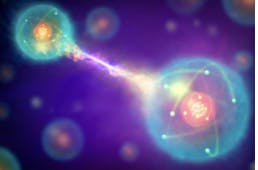
It is quite fascinating to see how science can be the perfect medium for pseudo-science. The discovery of electricity and magnetism generated all sorts of demonstrations that "magnetic waves", "energy flows", could heal you (provided that you shell a significant amount of your hard-earned cash of course). Similarly the development of quantum mechanics brought us quantum healing and quantum organizations (I just googled the terms, and, of course, got some results 😁).
Quantum physics is truly hard to grasp (in the words of Richard Feynman, "If you think you understand quantum mechanics, you don't understand quantum mechanics"). Maybe this is where we can break the diktat of "we are determined". Indeed, the theory presents some radical indeterminacy, some truly random variations. Could this be at the root of free will? This is very unlikely:
Quantum physics happens at minuscule scales and collapses at larger scales like the wet and warm environment that is the brain.
So far, no convincing mechanism has been shown, where the quantic states of particles would eventually, all together, have an influence on a motor neuron.
Same thing the other way around. We have not shown how our conscious thoughts could have an effect at the quantum level (and this would leave some kind of chicken and egg problem, on how this then generates an action).
Even if there was a quantum mechanism at the heart of free will, what does that say about it? That free will is fundamentally the result of a random process?
Intelligent design

Maybe we are being too reductionist? Maybe free will is more than just the sum of our hormones? Maybe it is something that emanates at a higher-level?
Indeed, Nature showcases many complex behaviors that are emergent:
A few ants don't do much. An ant colony builds cathedrals.
Bees communicate to find where the best flower fields are.
Slime mold, a uni-cellular organism, solves a maze.
Our blood system branches like fractals to cover our whole body.
Amazing, but in each case, the overall behavior is still explained, and caused, by simple behaviors. In the case of the blood system for example, there is no central architect gene/hormone/brain region creating the full topology. Instead, one gene codes for the branching factor: when to branch vessels and when to stop. Not only that, but the same gene supports the notion of branching for other parts of our body, like neuron dendrites.
What is causing high-level, sophisticated, behaviors is eventually just a potent mixture of simple parts. There is no need to invoke another organizing principle.
Where to go from there?
Robert Sapolsky is profoundly convinced that we are nothing more than the sum of our biology, which we can't control. This is also totally obvious to me, I see it as Occam's razor in action. No need to invoke "free will", a "soul", some transcendent "self", to explain our behaviors. While this would answer one question, it would raise a lot more: where does it come from? How is it built? How long does it last? etc...
Yet, we are so used to the impression that we decide, that we act, that we take responsibility. Isn't that what we learn from the youngest age? Absolutely. The pre-frontal cortex is the last part of the brain to mature, around the age of 25, because we have to be taught: "what's the hard thing to do, when it is the right thing to do" (see what I did? Still biology at work).
Now, if we start telling people that there is no free will:
Are they going to run amok?
Are we even capable of changing?
Does it still make sense to punish people?
Does it still make sense to reward people?
No free will = headless chickens?
This is a valid concern. It is also a concern frequently expressed by religious people when discussing with atheists: "If you don't have anything objective on which to base your ethics, what prevents you from going mad?".
Experimentally, the answer to that question has several layers. Religious people are more prosocial and give more to charity that secular people. But when you control for all factors: age, sex, wealth, then the results are less drastic. Even less so when you inquire about what people say they do and what they really do. You might eventually still find a little more prosociality in the religious group. With a catch, though. It is mostly for the in-group. It is mostly for the US, not THEM. Religious people are more charitable but mostly towards their co-religionists. Ultimately, it cannot be proven that atheists have lower ethical standards than religious individuals.
Similar kind of experiments can be performed with free will believers and non-free will believers. Subjects being told about the absence of free will are more likely to cheat in economic games. Yet, if you test people who have held this position for a long time, they are no less ethical than believers. Even better, the more they think that free will does not exist, that there's no wiggle room for it, the stronger their values will be.
Ultimately, it has been observed that, whatever your credo is, religious/atheist, free will believer/non-believer, what matters most is the time you have spent deeply thinking about it.
How many free wills does it take to change oneself?
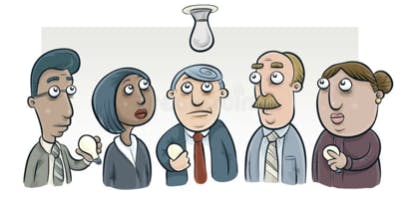
Seeing the world as fully determined can be a bit terrifying. We can easily think that given the cards we are dealt, we will never change. This is far from being the case. In the book, our bearded friend, explains in detail, at the neuronal level, how a sea slug, Aplysia, adapts to external aggressions. Progressively, a feedback loop, made of neurons, learns that it should protect the slug gills for longer period of times, until it is possible to come back to normal.
Mind you, we share the same mechanisms for learning and adapting that this sea slug. Even though it is a very, very, distant cousin, sharing a common ancestor with us more than 2 billion years ago!
Another example. Your mum is stressed while pregnant with you. As a result, she feeds you a lot more glucocorticoids than necessary and your amygdala (a part of the brain dealing with stress and fear) grows larger. As a kid, your resting levels of glucocorticoids are higher than average and you tend to be more reactive to stressors. Fortunately, you start a talking therapy at the end of your adolescence. Progressively, your amygdala gets less active. It has been more regulated by other parts of your brain.
The conclusion is that, it is not so much that we change, but we are changed. We are changed by our environment, by our interactions, and by the innate biology which allows for changes to occur.
Bad boy / bad girl

Sapolsky presents several examples where we previously believed people were truly bad or weak before understanding the underlying biology at work.:
Witches being burned because they were having epileptic seizures, or because villagers thought they were causing diseases.
Schizophrenia, which was attributed to bad parenting and "double-bind", before we discovered its genetics origins.
Similarly, autism, attributed to cold, distant mothers ("Refrigerator mothers").
PTSD, for Gulf War soldiers, who were described as "weak", before it was understood that prophylactic pills triggered it.
When we read about these examples, in the 21 century, we tend to think: "Of course, they were not witches", "Of course, John Nash was not psychotic because his mother was a monster, but probably because his circuitry for dopamine was not well-regulated". Etc... Yet, if we take the example of schizophrenia, it took years of concerted efforts, from family members, to lobby doctors and politicians to change the perception around that disease, even as we started to understand its causes.
This begs the question: what are the behaviors that we consider today as emanating from fully-responsible persons and which will be considered as having fully biological causes in 100 years? (if you've read so far, you should know. All of them 😀).
Still, what should we do when someone does something wrong? If we follow Sapolsky's reasoning, are we going to blame the car because the brakes are faulty? The author proposes a model similar to a medical quarantine:
People have diseases, they have bad behaviors.
It's not their fault.
It is ok to protect others by constraining the freedom of infectious or dangerous people.
We should constrain these persons with the absolute minimum necessary to protect others. Nothing more.
Wait, shouldn't we at least use punishment as a deterrent? What do studies say? This does not work. Ok, but maybe, bad persons deserve to be punished?
The need for punishment as the just retribution for crummy behavior is well-tested experimentally. It brings some measurable level of satisfaction. But, here again, there are some subtleties. For example, capital punishment can be more traumatic for families of victims. Furthermore, we have collectively evolved significantly in terms of the severity we expect from punishment. (I will let you read the horrific description of what happened to the assassin of Louis XV in the book).
A notable example is the case of Norway and the methodic crimes of Anders Breivik. Breivik was eventually not recognized as schizophrenic (yet, unsurprisingly, "[his mother] 'sexualised' the young Breivik, hit him, and frequently told him that she wished that he were dead". Surely that didn't help).
More or less, Norway adopted the quarantine approach: they put away the criminal for 21 years (the maximum sentence), in humane detention conditions, and even provided the possibility to study. One survivor said: "If he is not deemed dangerous any more after 21 years then he should be released ... That's how it should work. That's staying true to our principles and the best evidence that he hasn't changed our society". That is impressive. Many other societies would have considered Breivik's execution as a moment to celebrate.
Good boy / good girl

Another consequence of not having free will, is that we cannot be utterly smug for our achievements.
If you've had the right genes, the right emotional support as a kid, parents playing board games with you, a variety of experiences, a healthy body, a well-formed PFC supporting your will to pursue your objectives, and now you have a nice corner office, good for you. But you don't really deserve it, no more than a kid growing up with lead in his tap water deserves to have a low IQ.
Sapolsky says that some of his students get destabilized when they hear they don't get to be entitled for their brilliant future:
- "Hey, I worked hard for it!"
- "Yes, if you are here, you are among the really lucky, lucky ones"
Are we wiser now?
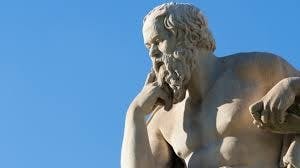
I think we are. First off because, on the road to recognize that we don't have any free will, we haven't deviated from science. We didn't need to invoke any supreme or transcendental principle at the core of our existence.
Secondly, nothing is lost! I still have a very strong sense of myself, and the belief that the actions I take today have significant consequences for my future, the future of my family, and society. (well, that's debatable 😅). In a sense, me, my body, is playing the real Game of Life (™):
With rules that I haven't decided.
With handicaps and strengths that have been dealt for me.
With tangible gains and losses at each turn..
With an objective that is not clear.
With the privilege of playing the game and simultaneously observing it being played.
With the certitude that the game will end!
I have also gained the knowledge that:
I can be gentle with myself. It is not just a matter of willpower if I cannot remember every fact that would be useful at work.
People can behave badly around me, and against me, but I don't have to blame them. Protecting myself is enough. Preventing them to do more harm is enough.
Maybe what I can do, with the remaining illusion of free will that remains, is to put myself in the conditions to be better influenced in the future: get good sleep, eat well, exercise, manage stress, do as much good I can around me, etc...
I can also position myself in the conditions to be changed for the better: read books challenging my thoughts, meet new people, share my interests,...
In more philosophical terms, Robert Sapolsky's book places us, not as actors, but as acted, in the meaningless and glorious story of the Universe. I am fairly certain that some Greek philosophers would have smiled in approval.
N.B: the summary above is a crude approximation of this wonderful 500+ pages book. All mistakes are mine, I hope you will kindly correct them by reading the book for yourself.
